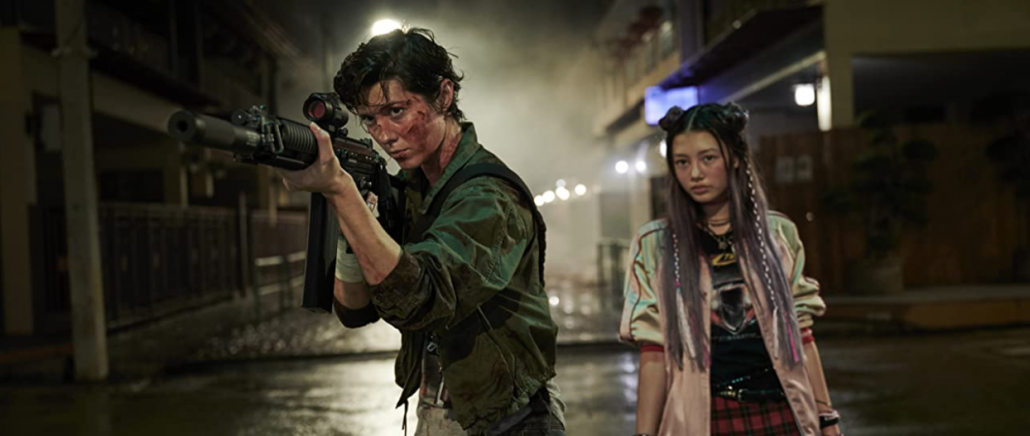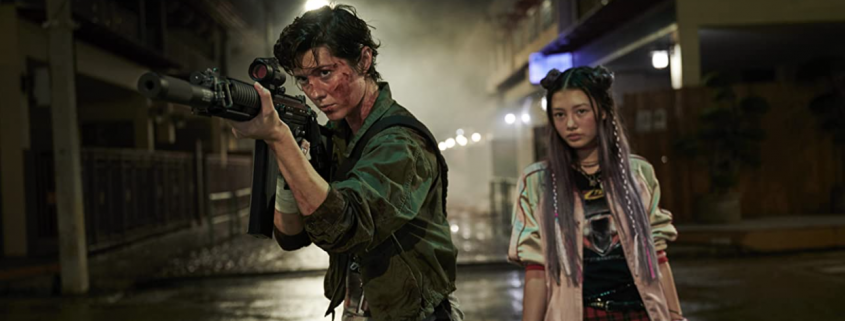‘Kate’ fights and fumbles its way past a storyline

Netflix’s latest release “Kate” skips, darts and tumbles, but never really takes the time to stand up. The action-packed thriller stars Mary Elizabeth Winstead as the titular “Kate,” a female assassin who is mysteriously poisoned one night and only has 24 hours to find the culprit before she dies. Kate must fight and kill members of the Yakuza through Tokyo to do so. Along the way, she develops a platonic friendship with Ani (Miku Martineau), the daughter of one of Kate’s past targets.
“Kate” lacks a cohesive storyline, and even when the action is fast-paced and dramatic enough to distract the audience, it’s still difficult to shake the feeling that the directors don’t really know what it’s doing or where it’s going. The gist of the movie is that Kate goes around killing and threatening individuals in a Japanese city painted as “foreign” and “other.” Japanese pop songs playing in the background not only accompany the action but also emphasize the film’s over-reliance on establishing atmosphere rather than an actual storyline.
The use of Japanese aesthetics and imagery, from geishas to neon Japanese signs, allude to Kate’s disorientation in her surroundings. Yet, they don’t do much except offer a superficial understanding of Japan for the purpose of advancing a white woman’s narrative. On a more serious level, harmful racial tropes present themselves in both the storyline and the visuals. The majority of Asians in the film are portrayed as either villains or without agency of their own. Many of the individuals that Kate encounters are subject to the whims of a dangerous and powerful white “heroine” who, if she wanted, could essentially end them all.
The theme of foreignness is a key element of the film, with Japan’s exoticism to Kate depicted through the setting and visual elements. This idea is one that needs to be challenged, and it is somewhat mentioned when Ani calls Kate a “foreigner,” which subverts the framework of Japan as foreign and instead labels Kate as an outsider to the environment instead. Ani, too, is alluded to as a “foreigner” when she is stigmatized for being biracial. It’s an interesting and nuanced dynamic that is only given a superficial kind of relevance, much like the rest of the film.
Narratively, the halfhearted attempt to add real, gripping stakes — the time limit, for instance — feels superficial, an element haphazardly thrown in as if to create some suspense in a film that lacks it. The dialogue reduces itself to a cheesy imitation of an action movie rather than an actual effort to advance the storyline.
That isn’t to say Winstead doesn’t do a compelling job of salvaging the character. Winstead is fierce when she needs to be and, at necessary times, vulnerable in her developing relationship with Ani. When Ani’s onscreen, it’s questionable why Ani is the sidekick rather than the protagonist.
Ani is intelligent, and knows her way around the city, which is much more than Kate can say. The film is titled “Kate,” but it should be named after Ani instead, who is the character with the most evident, vivid and memorable personality.
Ani’s relationship with Kate is also the more intricate aspect of a film that, for the most part, is a misfire. As a much more likable character than Kate, Ani faces real tension as she’s continuously misunderstood and mistreated by those who are supposed to be her “family.” Ani’s conflict as the “outsider” is much more authentic than the contrived nature of Kate’s, and viewers are given much more insight into Ani’s identity and her aspiration to be as strong and edgy as Kate.
These rare glimpses at the film’s deeper dimensions — the female friendship and the overarching theme of being an outsider — are fleeting. With the convoluted plot twists at the end of the film, “Kate” drags on far too long and is an overall disappointing experience to watch. There’s some heartwarming merit to some parts, but the film’s lack of imagination pushes it down even as Kate attempts to pull herself up.
“Kate” doesn’t have much depth to it, choosing instead to focus on the attention-grabbing action scenes. It fumbles through the moments that demand the actual attention, which means that, when Kate the character ultimately falls, the film also falls for good.

